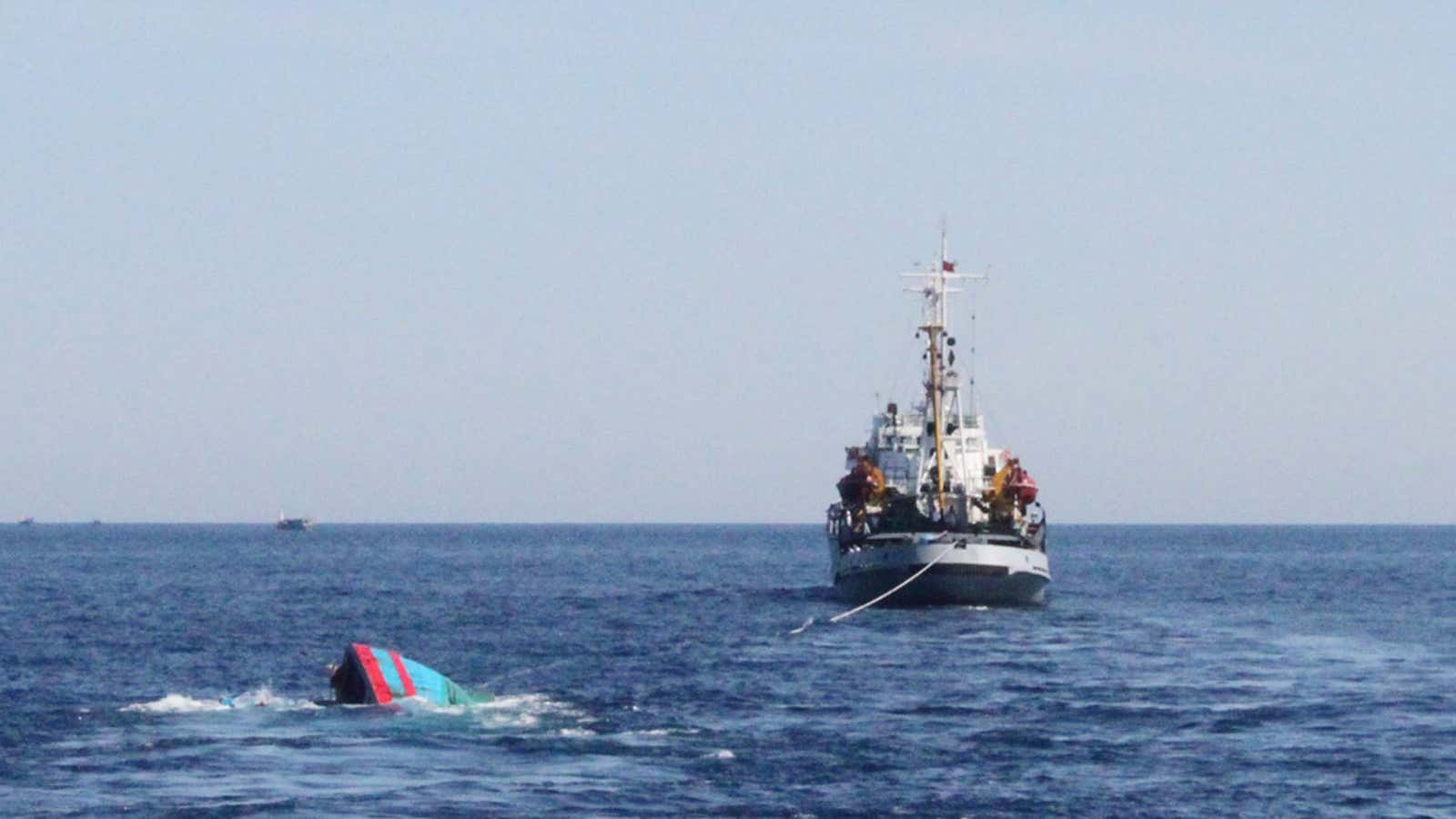China’s neighbors think its deployment of missiles to contested islands in the South China Sea represents an escalation in tensions. China doesn’t. It believes that foreign countries talking about those missiles does.
That’s the viewpoint put forward by two recent editorials in the Global Times, a boisterous English-language daily, and one by Xinhua, the state newswire. The newspaper has warned Australia and the US against doing “anything that might harm regional peace”—like criticizing China for upping the number of deadly weapons in the South China Sea, for instance.
“The hype of some Western media is merely a rehash of the ‘China threat,'” the Global Times quoted the defense ministry as saying on Wednesday (Feb. 17), in retaliation to media reports of China’s missile deployment.
In anticipation of Wednesday’s visit to Beijing by Julie Bishop, Australia’s foreign minister, Hong Lei, China’s foreign ministry spokesperson, said: “Australia should adopt an objective and impartial position and avoid doing anything to harm regional peace and stability.” Bishop had made clear that she would raise the issue of island-building in the South China Sea during her visit. Australia also supports the Philippines’ use of an international arbitration court over its maritime territorial dispute with China.
The conflict between China and several of its neighbors has been brewing largely under the surface for years. Taiwan, Vietnam, the Philippines, and China all contest various parts of the sea. But in recent years China has begun antagonizing its neighbors. It has moved oil rigs into areas claimed by Vietnam, and has built islands in contested areas (other nations had done this before, but China is doing so at a far larger scale). Earlier this week, it deployed surface-to-air missiles to an island in waters also claimed by Vietnam and Taiwan.
In a meeting with the press on Wednesday, Hong responded said the island is “China’s inherent territory.” He added that, “China is entitled to deploy necessary defense facilities on its own territory and enhance national defense capabilities. It has nothing to do with militarization.”
Understanding the perspective highlighted in Hong’s comment—in which Beijing sees territory as China’s first and as contested second—might help explain how China can possibly contend that discussing the deployment of arms is more destabilizing than actually deploying them.
After all, in this line of thinking, if China didn’t absolutely consider the various contested waters as its own, then why would it have built all the other, non-military assets, like lighthouses and, “emergency facilities for weather forecasting and rescue?” Indeed, Wang Yi, China’s foreign minister, sounded surprised in a separate press conference on Wednesday, about why foreign reporters wouldn’t focus more on such peaceful buildings.
“[Wang] told reporters in Beijing that he hoped Western media would pay more attention to the lighthouses,” said a Global Times report. Until the newly installed missiles go away, that is unlikely to happen.




